I listened to it so many times, I committed it to memory. I must have been only five or six years of age, because we did not visit as much after that. When I was in Junior High School, I entered poetry reading contests and used this poem, long since memorized.
In college, I killed a couple of otherwise pleasant evening by deciding someone might enjoy hearing me recite the poem.
It was an odd thing this love my grandmother had for Kipling. She, the hater of the English and all things English and he, the poet of English Empire. Or at least that was how we generally viewed him.
He had written Ulster 1912, anti-Irish home rule, anti-Catholic.
But I doubt that he was always the imperialist. Maybe it is reading through eyes that want to see the world rose colored, but those Empire poems seemed anti-imperialistic to me.
In one of the odd turns in my life I took a graduate course in Portuguese studying the epic poem of Portugal, Os Lusiados, by Luis Camoes. This was the great imperialist poem of Portugal that sounded to me to be anti-imperialist. And then, I think the Iliad is anti-war. I thought Patton was an anti-war movie. I saw Natural Born Killers as a comedy. So I know my judgment on these things is hardly to be trusted.
The White Man's Burden is supposed to be an appeal to the United States to colonize the Philippines. I have never been able to view as "an appeal" the following lines:
Send forth the best ye breed--
Go bind your sons to exile
To serve your captives' need;
To wait in heavy harness....
Go bind your sons to exile
To serve your captives' need;
To wait in heavy harness....
Nor have I ever been able to read the Recessional as favoring Empire, but more as a caution against it:
Far-called, our navies melt away;
On dune and headland sinks the fire:
Lo, all our pomp of yesterday
Is one with Nineveh and Tyre!
Judge of the Nations, spare us yet,
Lest we forget - lest we forget!
On dune and headland sinks the fire:
Lo, all our pomp of yesterday
Is one with Nineveh and Tyre!
Judge of the Nations, spare us yet,
Lest we forget - lest we forget!
His background, to me, would more likely produce a critic of Empire than an imperialist. He was born in Bombay, India and during his happy early days was raised by the Portuguese Nanny and the Hindu Meeta who taught him the stories that became the basis for his later Jungle Books. When he was later shipped off to English boarding, he was miserable.
In general, people who are exposed to foreign peoples, tend to have their sense of white superiority tempered by a dose of experience. Luis Camoes was one. I think, also, of the contrast between Charles Darwin and Alfred Russel Wallace.
Kipling was awarded and accepted the Nobel Prize. He refused both knighthood and offers to be Poet Laureate of England. Not, to me, a sign of an ambitious imperialist.
It seems to me the death of his son at war in 1915 would have made him anti-war (which means anti-empire) if he were not so before. Teddy Roosevelt had a similar shift when his son died at war. I would imagine that it is hard to stay jingo when the big sacrifice is made. Of course, modern imperialists do not seem to make the foolish mistake of sending their own children (first twins Jenna and Barbara, for instance) to risk death.
EPITAPHS OF THE WAR, 1914-1918
An Only Son
I have slain none except my Mother. She
(Blessing her slayer) died of grief for me.
COMMON FORM
If any question why we died,
Tell them, because our fathers lied.
A DEAD STATESMAN
I could not dig: I dared not rob:
Therefore I lied to please the mob.
Now all my lies are proved untrue
And I must face the men I slew.
What tale shall serve me here among
Mine angry and defrauded young?
An Only Son
I have slain none except my Mother. She
(Blessing her slayer) died of grief for me.
COMMON FORM
If any question why we died,
Tell them, because our fathers lied.
A DEAD STATESMAN
I could not dig: I dared not rob:
Therefore I lied to please the mob.
Now all my lies are proved untrue
And I must face the men I slew.
What tale shall serve me here among
Mine angry and defrauded young?
Does this sound like an imperialist to you?
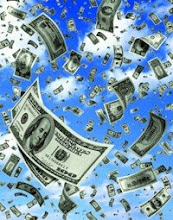
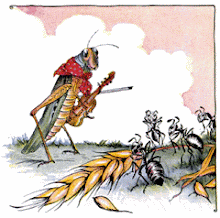














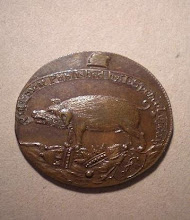









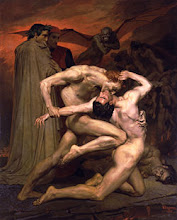_-_Dante_And_Virgil_In_Hell_(1850).jpg)



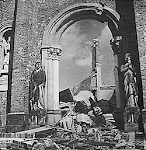







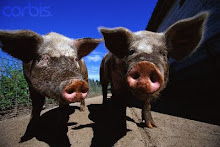



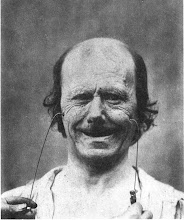
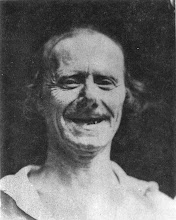


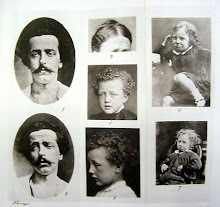



















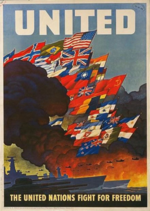

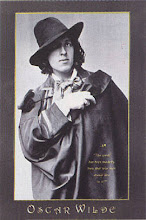
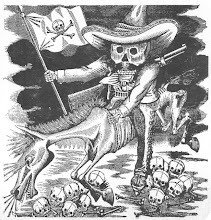












4 comments:
...Mother Superior jumped the gun...
I'll go out on a limb and venture to suppose that the majority of new readers to this fine blog are our independent thinkers. I see no comfort way around the issues other than to ponder and reconcile; or put off for another day, the inevitable lemming-like cadence that party leaders drum out.
On the other hand, I feel like I'm between a twilight-zone saga where Voltaire, Jonathon Winters, and Alfred Hitchcock are directing the flow and progress of inevitable doom.
Will there be light at the end on the tunnel?
Respectfully,
Deep waters
Of course, modern imperialists do not seem to make the foolish mistake of sending their own children (first twins Jenna and Barbara, for instance) to risk death.
Bush can't force his daughters to join the Army anymore than he can force them to become architects or airplane pilots. There is no draft. People join the military by choice.
And, John McCain has a son that has served in Iraq.
On a different note, here is the first poem I read of Kipling. It was included in our school reading textbook. I don't remember the grade anymore.
IF...
IF you can keep your head when all about you
Are losing theirs and blaming it on you,
If you can trust yourself when all men doubt you,
But make allowance for their doubting too;
If you can wait and not be tired by waiting,
Or being lied about, don't deal in lies,
Or being hated, don't give way to hating,
And yet don't look too good, nor talk too wise:
If you can dream - and not make dreams your master;
If you can think - and not make thoughts your aim;
If you can meet with Triumph and Disaster
And treat those two impostors just the same;
If you can bear to hear the truth you've spoken
Twisted by knaves to make a trap for fools,
Or watch the things you gave your life to, broken,
And stoop and build 'em up with worn-out tools:
If you can make one heap of all your winnings
And risk it on one turn of pitch-and-toss,
And lose, and start again at your beginnings
And never breathe a word about your loss;
If you can force your heart and nerve and sinew
To serve your turn long after they are gone,
And so hold on when there is nothing in you
Except the Will which says to them: 'Hold on!'
If you can talk with crowds and keep your virtue,
' Or walk with Kings - nor lose the common touch,
if neither foes nor loving friends can hurt you,
If all men count with you, but none too much;
If you can fill the unforgiving minute
With sixty seconds' worth of distance run,
Yours is the Earth and everything that's in it,
And - which is more - you'll be a Man, my son!
Thank you for bringing back this memory.
Patricia A.
Dear Ms. A,
These are the lines of "If" that stay with me:
"If you can meet with Triumph and Disaster
And treat those two impostors just the same;"
They also resonate with the Chesterton quote that "Nothing fails like success." I have been reading some of Chesterton's essays recently and hope to discuss him in a post soon.
Thank you for the comment.
P.S. I note that Chelsea Clinton has apparently also not been in Baghdad recently. I include the Clintons in the phrase "modern day imperialists," so please do not take the reference to the first twins as a partisan swipe. It was meant as a bipartisan swipe.
As to the voluntariness of service, I throw in the whip of economic necessity in thinking some jobs are filled on a less than voluntary basis.
Yours most sincerely,
Edward Said, wrote "Orientalism" He created a socio-literary analitical approach to colonial literature I find interesting. It is called contrapuntal analysis. He says that when you read Kipling try and read it from the perspective of the Indian servant serving tea. Or read it as the worker on the plantation which serves the English master.
This will forever change how you read Kipling and in fact all colonial literature
Post a Comment